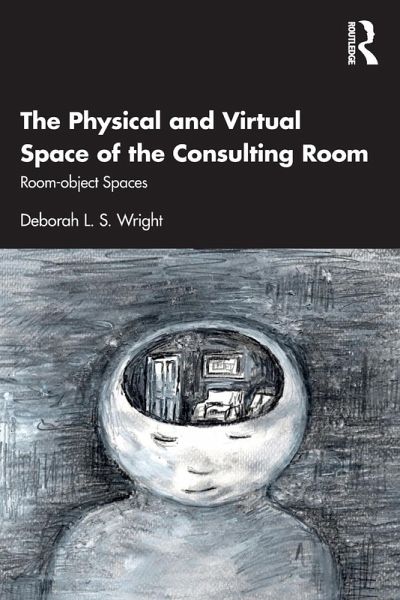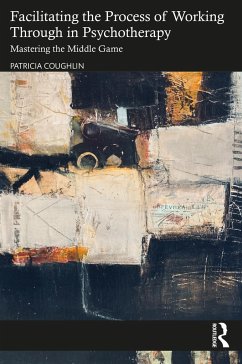
The Physical and Virtual Space of the Consulting Room
Room-object Spaces
Versandkostenfrei!
Versandfertig in 6-10 Tagen
36,99 €
inkl. MwSt.
Weitere Ausgaben:

PAYBACK Punkte
18 °P sammeln!
In this thought-provoking book, Deborah Wright examines the role of both space and objects as they become manifest in the psychoanalytic process and looks at how the role of the consulting room in the therapeutic process is both primitive and transferential.Wright explores spatialisation as simultaneously being a psychological projection of meaning and as physically acting upon the environment, utilised to master the undifferentiated, relentless, internal pressure of instinct. Throughout The Physical and Virtual Space of the Consulting Room, she considers the spatial aspects of work with patie...
In this thought-provoking book, Deborah Wright examines the role of both space and objects as they become manifest in the psychoanalytic process and looks at how the role of the consulting room in the therapeutic process is both primitive and transferential.
Wright explores spatialisation as simultaneously being a psychological projection of meaning and as physically acting upon the environment, utilised to master the undifferentiated, relentless, internal pressure of instinct. Throughout The Physical and Virtual Space of the Consulting Room, she considers the spatial aspects of work with patients by foregrounding the importance of the consulting room and its contents, including the impact of changes of consulting room, travelling, and in working virtually. Illustrated with clinical material and hand-drawn artwork, Wright orients the reader in the new territory by going beyond the existing literature that considers the objects and space of the consulting room solely as transferential aspects of the analyst.
The interdisciplinary approach in this book calls on psychoanalytic theory and technique as well as philosophy, history, archaeology, and anthropology, which will be of great interest to all psychoanalytically orientated therapists as well as anyone, clinical or non-clinical, who makes use of psychoanalysis.
Wright explores spatialisation as simultaneously being a psychological projection of meaning and as physically acting upon the environment, utilised to master the undifferentiated, relentless, internal pressure of instinct. Throughout The Physical and Virtual Space of the Consulting Room, she considers the spatial aspects of work with patients by foregrounding the importance of the consulting room and its contents, including the impact of changes of consulting room, travelling, and in working virtually. Illustrated with clinical material and hand-drawn artwork, Wright orients the reader in the new territory by going beyond the existing literature that considers the objects and space of the consulting room solely as transferential aspects of the analyst.
The interdisciplinary approach in this book calls on psychoanalytic theory and technique as well as philosophy, history, archaeology, and anthropology, which will be of great interest to all psychoanalytically orientated therapists as well as anyone, clinical or non-clinical, who makes use of psychoanalysis.














